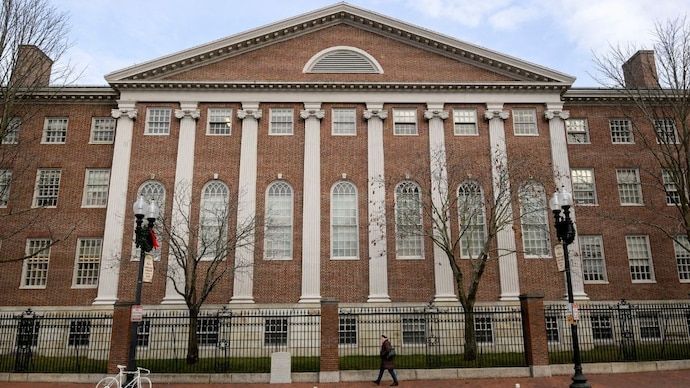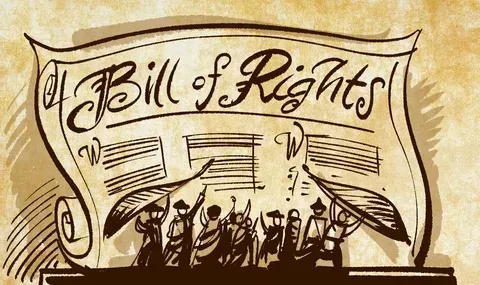Michigan’s Legal Defense Fund Act

- What is Michigan’s Legal Defense Fund Act (“LDFA”)?
The LDFA is a Michigan law that requires elected officials in the State of Michigan to make certain disclosures if they solicit funds from the public to pay for their legal defense in a matter relating to how they carried out their official duties.
- Where can the full text of the Legal Defense Fund Act (“LDFA”) be found?
https://www.legislature.mi.gov/documents/mcl/pdf/mcl-Act-288-of-2008.pdf
- Who does the LDFA apply to?
The LDFA applies to individuals who hold an elective office in state or local government in Michigan.
- MCLS §15.223(b).
- How are disclosures made?
Statements are filed with the Michigan Secretary of State.
- MCLS §15.525(1)
- What goes into the disclosure statements?
There are a few types of disclosure statements that need to be filed. When the fund is formed, a statement of organization is filed. Transaction reports are filed on a quarterly basis. When the fund is closed, a statement of dissolution is filed.
The statement of organization includes the following information:
(a) The name, street address, and telephone number of the legal defense fund. The name of the legal defense fund shall include the first and last names of the elected official who is the beneficiary of the legal defense fund and the words "legal defense fund".
(b) The name, street address, and telephone number of the individual designated as the treasurer of the legal defense fund.
(c) The name and address of the financial institution in which money of the legal defense fund is or is intended to be deposited.
(d) The full name of and office held by the elected official who is the beneficiary of the legal defense fund.
(e) A description of the criminal, civil, or administrative action arising directly out of the conduct of the elected official's duties for which a contribution to or expenditure from the legal defense fund was made.
- MCLS §15.525(2)(a)-(e).
Transaction reports include the following information:
(a) The legal defense fund's name, address, and telephone number and the full name, residential and business addresses, and telephone numbers of the legal defense fund's treasurer.
(b) The following information about each person from whom a contribution is received during the covered period:
(i) The person's full name.
(ii) The person's street address.
(iii) The amount contributed.
(iv) The date on which each contribution was received.
(v) The cumulative amount contributed by that person.
(vi) If the person is an individual whose cumulative contributions are more than $100.00, the person's occupation, employer, and principal place of business.
(c) The following information itemized as to each expenditure from the legal defense fund that exceeds $50.00 and as to expenditures made to 1 person that cumulatively total $50.00 or more during a covered period:
(i) The amount of the expenditure.
(ii) The name and address of the person to whom the expenditure is made.
(iii) The purpose of the expenditure.
(iv) The date of the expenditure.
- MCLS §15.527(1)(a)-(c).
Transaction reports must also include a verification statement signed by the treasurer, similar to the following example:
I, ____________, am the treasurer of the [elected official’s full name] Legal Defense Fund. I have used all reasonable diligence in preparing this report, and to the best of my knowledge, it is true and complete.
- When are disclosures made?
The statement of organization is filed within 10 days after the legal defense fund receives its first contribution, OR the fund first spends money behalf of the elected official, whichever is earlier.
- MCLS §15.525(1).
The statement of dissolution must be filed when the fund is dissolved.
- MCLS §15.525(5).
Transaction reports are filed on a quarterly basis, according to the schedule below:
Transaction reports for following period:
Must be filed by:
January 1 to March 31
April 25
April 1 to June 30
July 25
July 1 to September 30
October 25
October 1 to December 31
January 25
MCLS §15.527(2).
What are the penalties for failing to make a required disclosure?
For failing to file a timely statement of organization:
There is a $10 per day late fee, with a maximum of $300.
An elected official who fails to file at all can be found guilty of a misdemeanor and punished by imprisonment for up to 93 days or a fine of up to $1,000, or both.
- MCLS §15.525(4).
For failing to file a timely transaction report:
There is a $25 per day late fee, with a maximum of $500, unless the fund has received a contribution of over $10,000 in the last 2 years, in which case there is a schedule of higher fines as set forth at length in the LDFA, with a maximum of $1,000.
A treasurer who fails to file 2 transaction reports, where both reports remain unfiled for over 30 days can be found guilty of a misdemeanor and punished by imprisonment for up to 93 days or a fine of up to $1,000, or both.
- MCLS §15.529(1).
- What should an elected official do if he failed to make a required disclosure?
Immediately file a disclosure statement with the Secretary of State
- What is the likely outcome if an elected official makes a late disclosure?
For a late statement of organization:
If no charges have been filed, the most likely outcome is that the official will pay a late fee. If the disclosure statement is filed more than a month late, the fee will not exceed $300. Criminal charges are unlikely if the official files the disclosure statement prior to being criminally charged.
This prediction is based on the wording of the statute, which merely imposes a late fee if an official fails to file “as required by this section” (the overall section describing how to file the disclosure statement), but imposes a criminal penalty for an official who fails to file the disclosure statement “under this subsection” (the specific subsection addressing late and missing filings). In other words, if an official fails to file the disclosure statement, then a late fee is imposed at the time that the late statement is filed. But if an official also fails to file the statement late, then a criminal penalty can be imposed. If both situations were treated the same way, then there would be no reason to cap the late fee at $300, since the criminal fine can be as high as $1,000.
- MCLS §15.525(4).
For a late transaction report:
If there is only one overdue transaction report, then a fine is likely to be the only punishment. If there are two overdue transaction reports, but the second report is less than 30 days overdue, then a fine is still likely to be the only punishment. If there are two or more overdue transaction reports, and at least two of them are more than 30 days overdue, then criminal charges may be filed.
- MCLS §15.529(1)-(2).
What else should an elected official seeking donations for legal defense be aware of?- An elected official may not solicit or accept any contributions to pay for a legal defense in an action relating to their official duties unless the contributions are made to a fund that complies with the LDFA.* MCLS §15.533(1).
- Anonymous contributions to legal defense funds are not allowed. Any anonymous donations must be given to a 501(c)(3) charity and documented with a receipt, and may not be deposited into the legal fund account.* MCLS §15.533(2).
- Straw donations (where Party A gives money to Party B for Party B to contribute to the legal defense fund) are not permitted.* MCLS §15.533(3).
- All the money legal defense fund must be kept in a single account, separate from any other money.* MCLS §15.533(4).
- All records for the fund must be kept for 5 years. Failure to do so can result in a civil fine of up to $1,000. MCLS §15.527(6).
- Knowingly submitting false information in one of the disclosure forms is a misdemeanor punishable by up to 180 days in jail or a fine of up to $5,000, or both. MCLS §15.527(7).
- Filing an incomplete transaction report can result in a civil fine of up to $1,000. MCLS §15.529(3).
- Money from the legal defense fund may only be used to pay for administration of the fund, attorney fees, or related legal costs.* MCLS §15.5235(1).
- The fund cannot be used to pay for direct or indirect payments for media purchases, media consulting, or mass mailings.* MCLS §15.5235(1).
- The fund can only be used to pay for the legal defense of the one elected official who established it.* MCLS §15.5235(1).
* Violation of any of the rules marked with the * is a misdemeanor punishable by up to 93 days in jail or a fine of up to $1,000, or both, or a fine of $10,000 if violated by a corporation or some other entity besides an individual. MCLS §15.533(5), MCLS §15.5235(2).
More News & Resources











